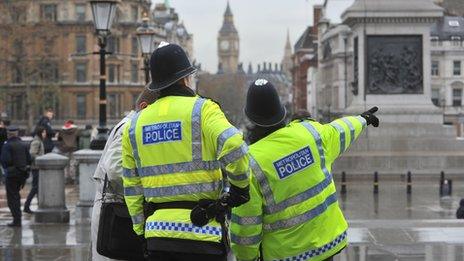Met Police has 'culture of fear', officers say
- Published
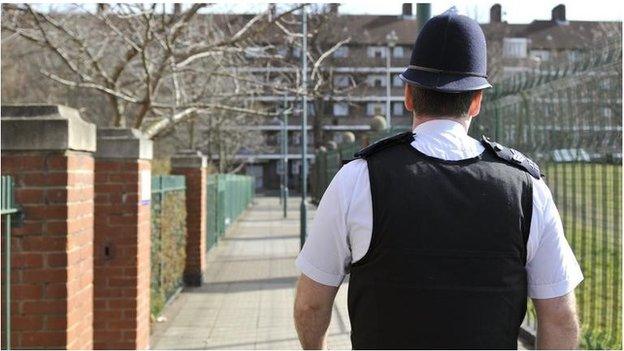
The report includes criticism that officers are regularly "named and shamed with a league table"
There is a "culture of fear" in the Metropolitan Police because of the "draconian" use of performance targets, a report into the force has said.
It calls some targets "meaningless" and "unrealistic" - and says others are "disguised" by senior officers.
The report was compiled by the Met Police Federation from interviews and surveys with 250 officers.
Scotland Yard denied claims of a "bullying culture" and said it made "no excuses" for valuing performance.
John Tulley, Met Police Federation and Simon Byrne, Met Assistant Commissioner discuss the issue
John Tully, chairman of the Metropolitan Police Federation, said the report painted a "devastating" picture.
'Rock bottom'
He told the BBC's Today programme that officers who missed targets were put on a "hit list", with some facing potential misconduct action.
"It's correct that we are measured on what we do. Whether or not it's an absolute must that there are performance-driven targets I think is questionable," Mr Tully said.
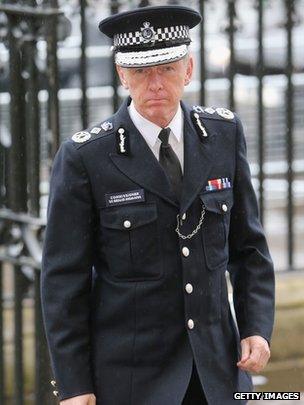
The report has been submitted to Met Commissioner Sir Bernard Hogan-Howe
One officer, he said, told the federation that he had to arrest at least four people a month and that he had to do 10 stop-and-searches, one of which had to have a positive outcome.
The federation chairman said some officers were "at rock bottom" and that they wanted to see some sort of change in management style.
"I think there is need for some change. We need to look at that," Mr Tully added.
"Whether or not it's a full root-and-branch change, I'm not sure. The Met has a long and bright history around serving the people of London and I hope that continues."
The report, submitted to Met Commissioner Sir Bernard Hogan-Howe and other senior officers, follows a warning from Home Secretary Theresa May that police performance targets are making a "comeback".
Mrs May - who has scrapped most centrally-imposed police targets - told a conference in September that performance measures were being reintroduced by some forces as a "security blanket".
The report highlighted a number of stop-and-search targets:
A 20% arrest rate for stop-and-searches
20% of stop-and-searches should be for weapons
40% for neighbourhood (property) crime
40% for drugs
It also identified targets set for one policing team in 2011:
PCs to make one arrest and five stop-and-searches per shift
Metropolitan Special Constabulary officers to make one arrest per month and five stop-and-searches per shift
Police community support officers (PCSOs) to make five stop-and-accounts per shift and two criminal reports per shift
BBC home affairs correspondent Danny Shaw said the report's findings made "uncomfortable reading" given the Met was already under the spotlight following allegations of corruption and cover-up in the Stephen Lawrence case, and given claims that crime figures had been manipulated.
But Metropolitan Police Assistant Commissioner Simon Byrne accused the federation of "sensationalising" the issue.
He told the Today programme that it was the Met's job to bring down crime and since it had a "more accountable way of doing things", rates were down by nearly 10%.
Mr Byrne said targets were often set at team level, in which supervisors set work rate targets, which he said he approved of.
"The public expects that we are out there to police the streets and keep them safe," he said.
Mr Byrne added that the report missed the bigger point, saying there were no targets for bravery that was seen every day on the force, in which people "put themselves sin the face of danger".
'Constant threat'
He added that there was a small minority that do not like to be held to account because the Met was changing. "People push back a bit when we take that no-nonsense approach," he said.
The Met Police Federation, which represents about 30,000 officers at the rank chief inspector and below, said "never before" have targets been applied with "such determination" as they currently are in the Met - the UK's biggest force.
One officer told the report: "Every month we are named and shamed with a league table by our supervisors, which does seem very bullying/overbearing."
Another officer refers to a "bullying-type culture".
The report says: "There is evidence of a persistent and growing culture of fear spawned by the vigorous and often draconian application of performance targets, with many officers reporting that they feel almost constantly under threat of being blamed and subsequently punished for failing to hit targets."
But Scotland Yard denied officers were being unfairly pressurised.
In a statement, the force said it was faced with many challenges, but insisted it did not have a bullying culture.
"We make no excuses for having a culture that values performance," it said.
"We have pledged to reduce crime, increase confidence and cut costs. It's a big task and we have a robust framework in place to ensure we achieve this. The public expects no less."
- Published27 March 2014
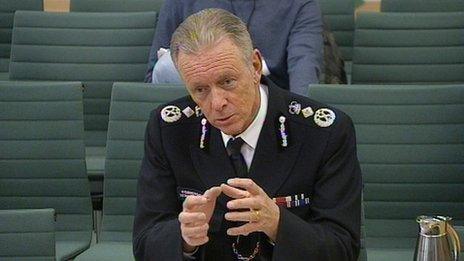
- Published25 March 2014
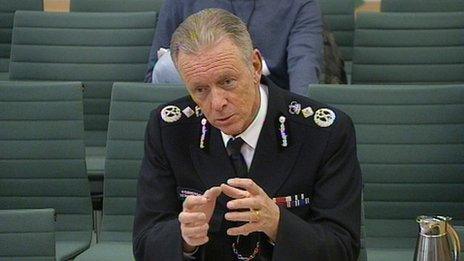
- Published25 March 2014
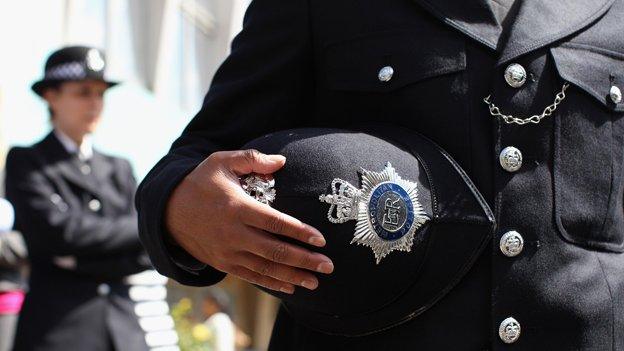
- Published25 March 2014
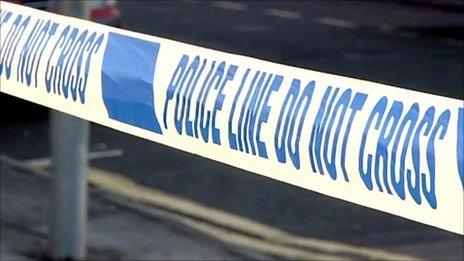
- Published24 March 2014
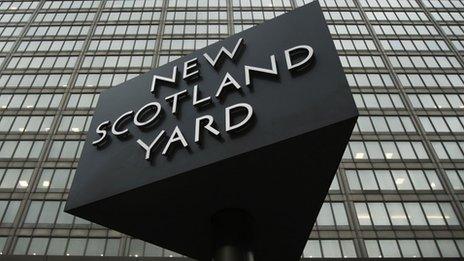
- Published18 March 2014
